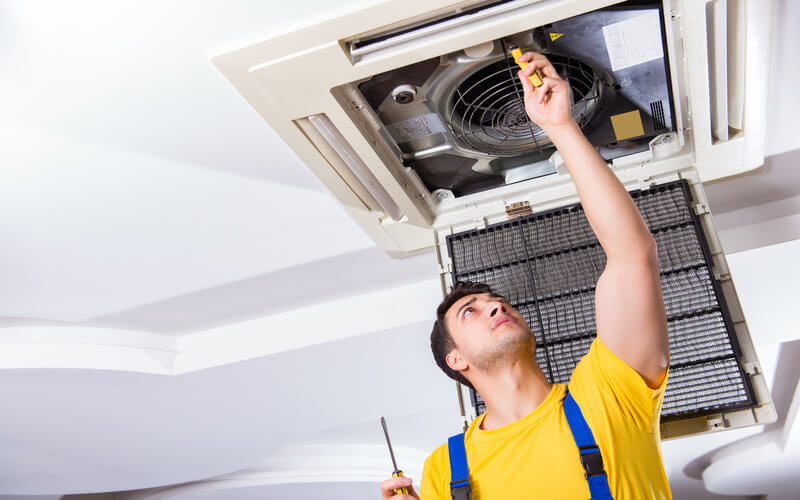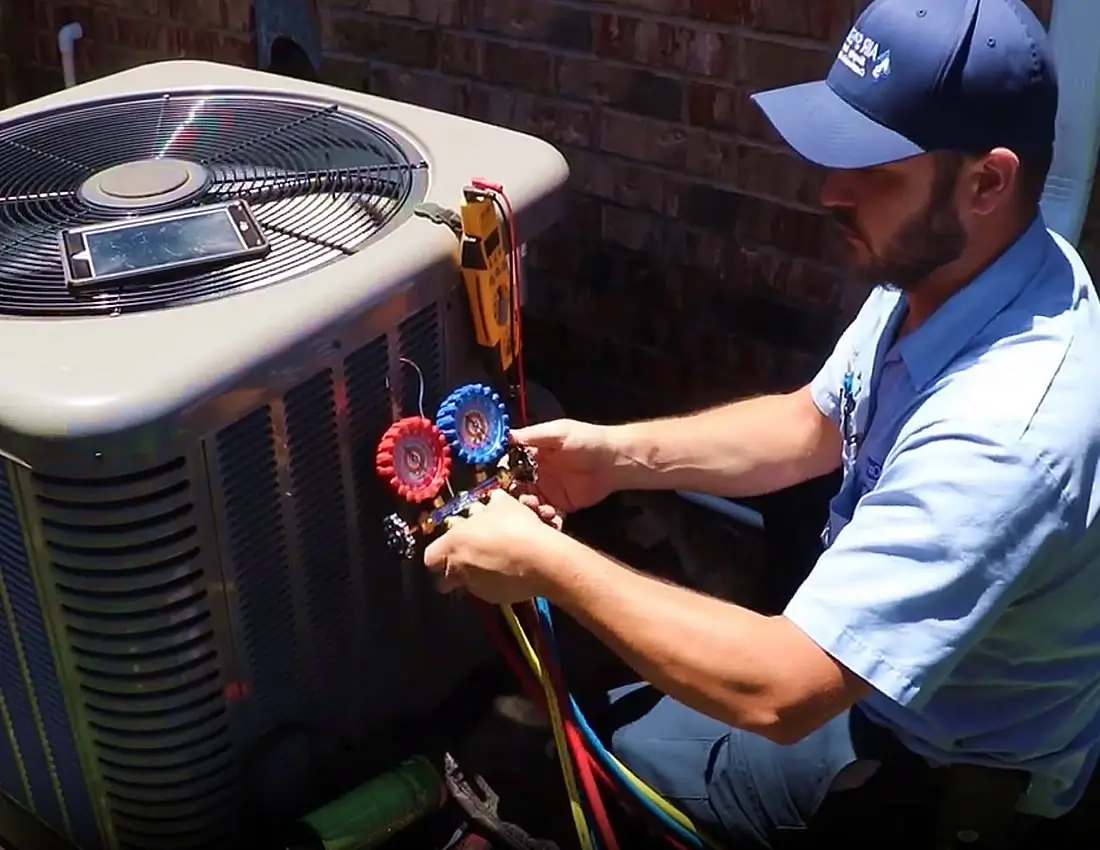5 Simple Techniques For Repair Air Conditioner Near Me
5 Simple Techniques For Repair Air Conditioner Near Me
Blog Article
Ac Repair for Beginners
Repair Air Conditioner Near Me: Expert Cooling System Remediation Ensures Your Home Stays Comfortable Throughout The Year
Types of AC Systems
When dealing with air conditioner repair work, understanding the type of cooling system you're dealing with can save time, money, and irritation. Ever questioned why some systems cool a space much faster than others? Or why particular systems appear to break down more frequently? Let's peel back the layers.
Central Air
Fix Air Conditioner for Beginners
Picture a cool breeze streaming through a whole house, whispering comfort into every corner. Central air systems do exactly that. They use a network of ducts to distribute cooled air, relying on a compressor and condenser outside, combined with an evaporator coil inside. However when this complex monster falters, determining the issue can be like finding a needle in a haystack.
Split Systems

Split systems are a popular option for many homes-- part indoor system, part outdoor compressor. They offer versatility and performance, but their double nature suggests repair work can involve either element. Have you ever heard a strange sound outside your home just to find the indoor unit isn't cooling? That's a classic indication of a split system glitch.
Unknown Facts About Ac Repair
Window Units
These compact warriors fight summertime heat by fitting snugly into a window frame. They integrate all components into a single box. Their simpleness frequently means less repair work headaches, but disregarding filters or permitting debris accumulation can lead to diminished efficiency or breakdowns.
Ductless Mini-Splits
A Biased View of Repair Air Conditioner Near Me
Ductless systems bypass ductwork entirely, making them ideal for homes without existing ventilation. They're peaceful, effective, and surprisingly resistant. When repair work are required, service technicians need to be adept at managing refrigerant lines and electrical connections-- no small accomplishment.
Quick Referral Table
| Type | Secret Features | Typical Repair Issues |
|---|---|---|
| Central Air | Ductwork, whole-house cooling | Duct leakages, compressor failure |
| Split System | Indoor & & outdoor units | Refrigerant leakages, fan motor concerns |
| Window System | All-in-one, simple setup | Filthy filters, electrical faults |
| Ductless Mini-Split | No ducts, zoned cooling | Line leakages, sensor malfunctions |
Repair Air Conditioner Near Me Fundamentals Explained
Unwinding one of the most Regular Air Conditioning Issues
Have you ever questioned why your air conditioning unit unexpectedly stops cooling throughout a sweltering afternoon? One common perpetrator is a filthy or blocked air filter. This sneaky bad guy limits air flow, requiring your system to work overtime, which not only minimizes efficiency however can likewise lead to early breakdowns. Picture trying to breathe through a headscarf soaked in dust-- it's exhausting!
Another frequent misstep is refrigerant leaks. These invisible leakages don't simply decrease cooling power but can also harm the compressor, the heart of your AC system. How frequently do you look for unusual hissing sounds or ice development on the coils? Catching these signs early can save you from costly repairs down the line.
Beyond the Essentials: Lesser-Known Issues
6 Simple Techniques For Air Conditioning Repair Near Me
Often, the thermostat itself is the troublemaker. Miscalibrated or defective thermostats send out mixed signals, causing the air conditioning to cycle unpredictably. Ever knowledgeable your air conditioning turning on and off in rapid succession? That's called short biking, a sly effectiveness drainer that can wear parts much faster than you 'd anticipate.
Electrical problems, such as used circuitry or a malfunctioning capacitor, might prowl beneath the surface. AC Repair Near Me. These often manifest as a/c systems failing to start or unexpectedly closing down. A professional eye knows to test these components with precision tools, something a casual glimpse will not expose
Specialist Tips for Diagnosing Common AC Concerns
Ac Repair Near Me Things To Know Before You Get This
- Examine and change air filters regularly-- every 1 to 3 months depending on use and environment.
- Listen for uncommon noises like rattling or buzzing that could signify loose parts or electrical faults.
- Examine the outdoor system for particles or obstructions that restrain airflow and trigger getting too hot.
- Try to find frost buildup on evaporator coils, a tip towards refrigerant issues or air flow limitations.
- Test the thermostat settings and recalibrate if the temperature level readings feel off.
Quick Recommendation Table: Manifestation & & Probable Causes

| Sign | Probable Cause | Specialist Tip |
|---|---|---|
| Warm air blowing | Low refrigerant or filthy coils | Tidy coils and look for leaks instantly |
| Brief cycling | Thermostat concerns or large unit | Adjust thermostat settings and seek advice from sizing standards |
| System will not begin | Electrical faults or capacitor failure | Test wiring and replace capacitors as needed |
| Water leakage | Clogged drain line or frozen evaporator | Clear drain lines and examine for coil icing |
DO IT YOURSELF Air Conditioner Upkeep Tips
Ac Fixing Things To Know Before You Get This
Ever noticed your air conditioning unit sputtering like an old engine on a hot summer season day? Disregarding subtle indications frequently indicates more than simply a sweaty afternoon-- it's a prelude to unanticipated AC repair expenses. But what if you could capture those whispers before they turn into wails? Regular do it yourself maintenance can be your very first line of defense.
Basic Steps to Keep Your Air Conditioner Running Smoothly
Things about Ac Repair
- Tidy or Change Filters: A clogged up filter is like attempting to breathe through a scarf. Every 1-3 months, inspect and switch out your filters. It enhances air flow and performance, avoiding compressor pressure.
- Examine the Condenser Coils: Dust and particles act as invisible blankets smothering your unit's cooling power. Gently brush or vacuum the coils, however prevent severe chemicals that might erode the metal.
- Examine the Drain Line: When was the last time you glimpsed at your drain pan? A blocked drain can cause water leaks and foster mold development. Flushing it with a vinegar option month-to-month keeps the circulation clear.
- Seal and Insulate: Are your ductworks whispering leakages? Sealing gaps with mastic or foil tape enhances efficiency and cuts down on irregular cooling.
Pro Tips Beyond the Fundamentals
- Measure your unit's voltage to catch subtle electrical wear before it sparks huge issues.
- Listen for unusual hums or rattles-- these acoustic breadcrumbs often indicate loose parts or failing motors.
- Keep outside units shaded however ensure a minimum of two feet of clearance around them for optimum air flow.
Ask yourself: Are you hearing your AC's peaceful SOS or simply waiting on it to yell? Taking time for DO IT YOURSELF air conditioner upkeep changes reactive repair work into proactive more info care, conserving sweat, stress, and yes, cash.
Repair Air Conditioner Near Me Things To Know Before You Buy
Why Know-how in AC Repair Work Matters
Envision this: your a/c system sputters and groans throughout a scorching afternoon, leaving you sweltering inside. Would you trust a beginner fumbling with fragile components, or would you look for the reassurance of a expert air conditioning professional!.?.!? The intricacies of modern air conditioning systems require precision and experience. A slight miscalculation can intensify a minor malfunction into a costly catastrophe.
Rumored Buzz on Fix Air Conditioner
Hidden Complexities Behind the Cool Breeze
Lots of ignore the layers hidden underneath the sleek exterior of an air conditioner system - Fix Air Conditioner. From refrigerant leaks that quietly drain pipes efficiency to defective thermostats that misread temperatures, these problems require more than a standard toolkit. Specialists possess a keen eye for detecting issues that average house owners overlook
Important Tips for Picking the Right Service Technician
Top Guidelines Of Ac Air Conditioner Repair
- Accreditation and Training: Validate credentials; a specialist trained in the latest heating and cooling technologies is invaluable.
- Experience with Specific Systems: Not all a/c systems are developed equivalent; discover somebody knowledgeable about your design's quirks.
- Diagnostic Approach: Experienced professionals utilize advanced tools-- like electronic leak detectors and thermal imaging-- to pinpoint covert faults.
What to Expect from a Pro's Diagnostic Process
| Step | Function | Expert Insight |
|---|---|---|
| Visual Inspection | Recognize apparent wear or damage | Try to find rust or uncommon noises-- a dead giveaway typically neglected |
| Pressure Evaluating | Discover refrigerant leakages | Subtle pressure drops can hint at micro leakages unnoticeable to the naked eye |
| Electrical Evaluating | Make sure circuit stability | Loose connections can imitate extreme mechanical failures |
10 Simple Techniques For Fix Air Conditioner
Why DIY Typically Falls Short
Tempting as it is to play with your air conditioning unit, do it yourself repairs regularly miss out on the root cause. For example, complementing refrigerant might momentarily cool your area however ignores leakages that worsen in time. Expert professionals do not simply spot signs; they hound the underlying mechanical and electrical faults that sap efficiency.
9 Simple Techniques For Fix Air Conditioner
Questions to Ask Before Hiring
- What diagnostic tools do you use to identify issues?
- Can you describe the repair work process and expected results?
- Are you familiar with the refrigerants suitable with my system?
- Do you follow security procedures for managing electrical elements?